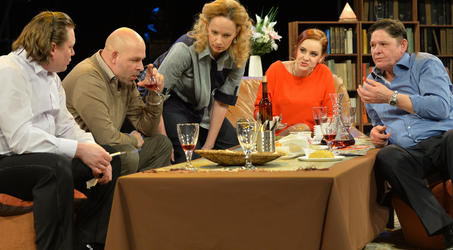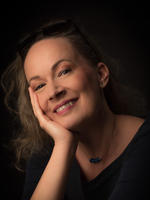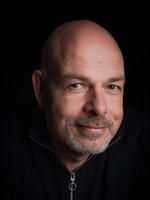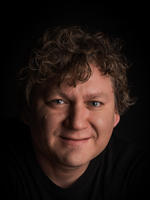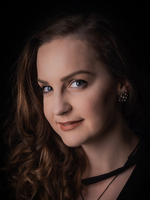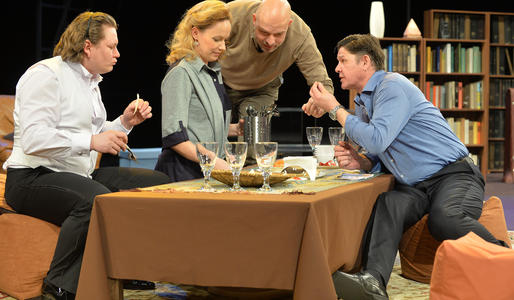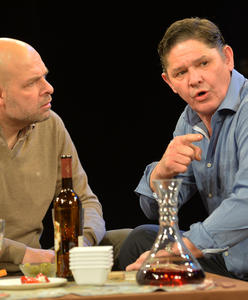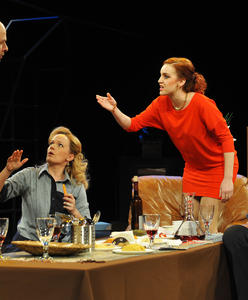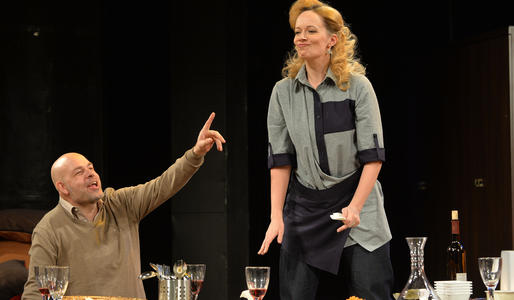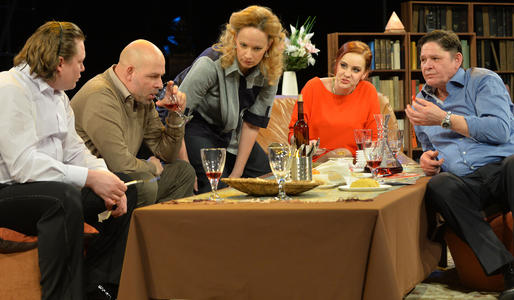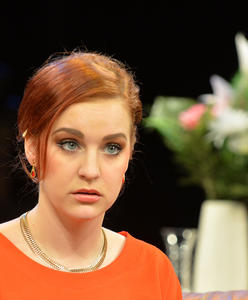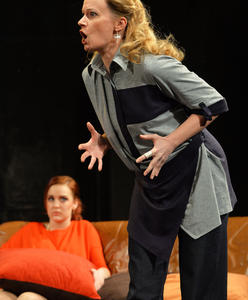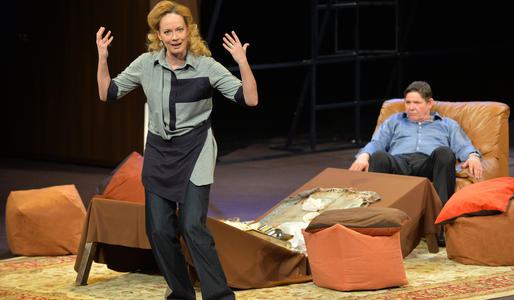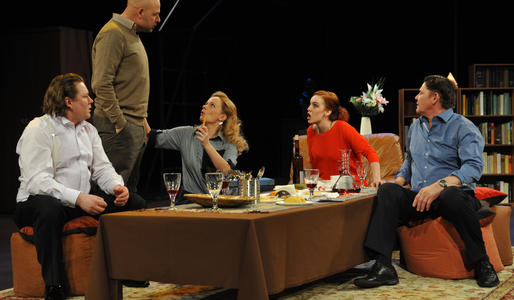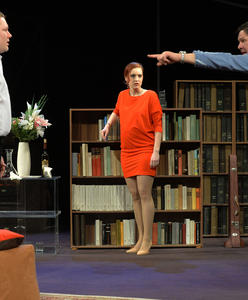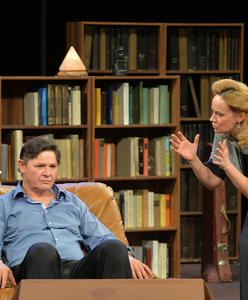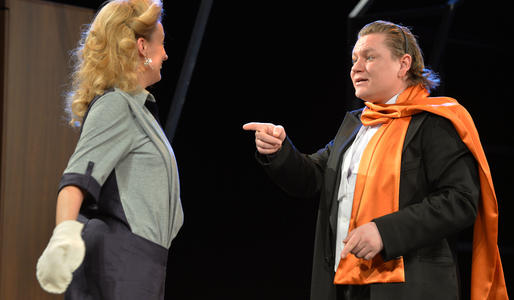LAUGHTER AS CORRECTION, ENTERTAINMENT AS WELL AS KNOWLEDGE
Jan Kolář 16. February 2016 zdroj Divadelní noviny
(…) Contemporary French authors Delaporte and de La Patellière wrote the play What´s in a Name about how one joke – that an expected child would be named Adolf “after Hitler” – totally destroys the relationships between family and friends. This brutal (...) statement on how life is both funny and tragic was staged by Petr Gazdík at Brno City Theatre with the exactness of a metronome. It features rapid changes between the comic and the serious, is both confident and comprehensive, and boasts exact portrayals of ambiguous characters by Alena Antalová and Martin Havelka in particular (…)
FUN IS FLOURISHING ON THE BRNO CITY THEATRE STAGE
Miroslav Homola 4. February 2016 zdroj Právo
Good comedies have traditionally been part of the permanent repertoire at Brno City Theatre and the fact that humour is flourishing at this theatre was also confirmed at the 16th Grand Festival of Laughter in Pardubice, which brought the theatre masters from Lidická Street three (!) awards for the production of the French comedy What´s in a Name. Brno City Theatre’s success in Pardubice follows on from their achievements in previous years: they also impressed the judges with their productions of The Stone Guest in 2004 and School, the Foundation of Life in 2011. The director of both productions was Hana Burešová, who was guesting at the theatre. It was for the first time in the history of the festival that Brno City Theatre was rewarded with triple ovations. This brisk comedy by French authorial duo Matthieu Delaporte and Alexandre de La Patellière entertained spectators in Pardubice just as it did in Brno, due to the energetic flow of its plot from witty moments through touching and sometimes almost cruel jokes and back again. The brilliant script, which prescribes a chamber ensemble of five actors (Martin Havelka, Alena Antalová, Viktor Skála, Jakub Uličník and Viktória Matušovová) was brought to the stage by Petr Gazdík. At the Gala Evening of Laughter at the South Bohemian Theatre, he obtained the Student Board of Judges Award and the Spectator Comedy 2015 Award. What´s in a Name and Brno City Theatre were mentioned in the hall again when the awards for the Best Female Acting Performance category were announced – the performance of a permanent star of Brno City Theatre, Alena Antalová, was appreciated in this way. (...).
ANTALOVÁ: WE ARE PLEASED THAT WHAT´S IN A NAME WAS SO POPULAR
Tomáš Dvořák 3. February 2016 zdroj Hradecký deník
The comedy What´s in a Name by Brno City Theatre received a stunning total of three prestigious awards at the 16th Grand Festival of Laughter. (...) Actress Alena Antalová was also given the award for the Best Female Acting Performance of the festival for the role of Elisabeth Garaud-Larchet. “We are happy that What´s in a Name is so popular. We who took part in this production also like it, and we are happy that we can perform it,” Alena Antalová said in an interview for the Deník newspaper.
“I see the award for the best female acting performance as a collective award. If I didn´t have such great colleagues, my role wouldn´t have made such an impact,” said the actress, who claims that it is hard to evaluate art. (...) “Life is already complicated enough for each of us and so it is good that such an event as the Grand Festival of Laughter in Pardubice exists. If a good comedy is produced, it brings joy not only to the people in the auditorium but also to us, thanks to the spectators´ response,” Antalová added.
A PHILOSOPHICAL DRAMA AND AN ARGUMENT ABOUT A NAME DOMINATED THE FESTIVAL
Gabriela Gregorová 2. February 2016 zdroj Mladá fronta Dnes
(…) The most frequently mentioned ensemble at yesterday´s celebratory Gala Evening of Laughter was Brno City Theatre, whose comedy What´s in a Name enjoyed a triple success. It was enjoyed by both the student board of judges and the spectators. “We have had the opportunity to see various types of excellent productions both by frequent participants in the festival and less well known ensembles. Brno’s production of What´s in a Name was the most entertaining for us, being a very witty, lively comedy with excellent acting performances. It was a clear winner for us in comparison with the others,” said Kristýna Plešková, a representative of the student board of judges. The success of Brno City Theatre was also confirmed by the award for the Best Female Acting Performance which Alena Antalová received for the role of Elisabeth Garaud-Larchet. (...)
AN ARGUMENT ABOUT ADOLF STARTS A SERIES OF VERBAL EXCHANGES
Lukáš Dubský 28. January 2016 zdroj Pardubický deník
(…) With the arrival of the character named Vincent, a series of ironic skirmishes and nicely-managed verbal exchanges ensues. It seems at the beginning that this will only be an academic debate about the suitability of the name Adolf between Vincent and his longtime friend from his childhood, Pierre. However, the other participants in the family dinner gradually begin to get involved in the argument until it isn´t possible to close the open floodgates of frankness any more. The characters learn some unpleasant truths and it seems that their relationships aren´t as idyllic as it seemed at the beginning. What´s in a Name is a brilliantly written conversation comedy with brisk dialogues. Director Petr Gazdík (...) judged correctly that it would help the story flow and build if the play was performed without a break. He could also rely on the actors to give 100%. Martin Havelka really enjoys playing the commentator Vincent, which is a rewarding role because it probably has the wittiest lines. Perhaps the most refined performance is delivered by Alena Antalová as Vincent´s sister Elisabeth. She is completely quiet at the beginning and her involvement in the plot is minimal, but it becomes apparent in the final monologue that this was perhaps the character affected most by the sharp exchange of opinions. (...) This contemporary French drama is one of the best comedies of recent years. It doesn´t shy away from more serious topics either, though they are of course viewed with detachment and spiced up with slightly black humour. (...)
A QUARREL-FILLED DINNER
Vít Závodský 8. June 2015 zdroj Týdeník Rozhlas
(...) Petr Gazdík, an “expert on musicals” with a wide range of acting experience, has an understanding of the verbal and compositional refinement of the brilliant original, with its witty and sharp dialogues. He’s made use of a new translation by Petr Christov for his sophisticated and well-coordinated production in which a quintet of experienced actors portrays a group of friends (who are also related) at a home get-together which goes badly wrong. A mischievous joke sparks off a culminating series of mutual accusations, attacks and conflicts that reveal years of accumulated animosity, aversion and injustice.
WHAT´S IN A NAME – A COMEDY WITH NO SHORTAGE OF TWISTS
Kateřina Šebelová 2. April 2015 zdroj www.epochtimes.cz
(…) Emil Konečný, who created the stage set for What´s in a Name, did a good job of creating the atmosphere of a pleasant living room where friends might meet. (...) Costume designer Eliška Ondráčková provided costumes of pleasant appropriateness and style which fit the figures and characters quite exactly (...). Martin Havelka plays the master of irony and black humour – Vincent – in a role that is tailor-made for him. His spontaneously unrestrained performance is probably the most impressive of all the male protagonists. His Vincent, who likes to put people in uncomfortable situations, is simply Martin Havelka being himself, with his characteristic irony and sarcasm (...) Explosive Viktor Skála supplements him well in the first half, while in the second part it is the quiet Jakub Uličník that shines at playing second fiddle. As far as the female performances are concerned, Alena Antalová excels in the role of Elisabeth, an intellectual who keeps a lot of injustice locked up inside her. At the dramatic end of the play she manages to get all of the warring parties to finally shut their mouths through an emotionally tense speech in which she transforms from a humble and kind lady into an exploding “pressure pot”. She manages this without pathos or the slightest hesitation, just like a Moroccan menu which even the toughest spectators couldn’t make themselves eat. Antalová and Havelka compliment one another perfectly, combining to form a duo of characters that drive the production forward in terms of both humour and plot (...) There’s no lack of style and pacing in this production, which keeps up the speed from beginning to end. (...)
FRENCH HUMOUR AT BRNO CITY THEATRE
Silvie Kostovská 26. March 2015 zdroj www.generace21.cz
(…) Martin Havelka is great as Anna’s husband, Vincent, who is also the imaginary narrator whose voice can be heard from the loudspeakers at the beginning and end of the performance. Alena Antalová and Viktória Matušovová excelled in the female roles. They spent most of the time trying to calm the situation down, though they had several strong moments themselves when they lost their patience and came clean to their men about what they really think. The five-member line-up was rounded out by Viktor Skála as Pierre, a university professor of literature, and Jakub Uličník, excellent in the role of “sugarplum” Claude (...).
PREMIERE OF A FRENCH COMEDY AT BRNO CITY THEATRE
Peter Stoličný 15. March 2015 zdroj www.i-divadlo.cz
A few words about the title itself: “Name” is “Nom” in French, but the correct name of the play is “Le Prénom”. In France, an additional first name is given to children after their birth. It is joined with the surname and is used for the identification of the individual persons within the family. This cannot be translated into Czech. Parents shouldn´t reveal this second name before the birth of the child as it leads to passionate discussions in the family as to whether or not it was selected correctly. This is the basis for the conflict in the play, the spark that sets off a blaze of embarrassment, jokes and situations from life that are written so brilliantly that the spectators find themselves laughing almost constantly. Sometimes they get goose bumps for a moment, thinking: “the authors have gone too far here”, but relieved laughter follows immediately as the protagonists somehow extricate themselves from the pit of super-black humour once again. It isn´t all just plain fun, however. In many places, the authors skilfully slow down the rhythm of the play and leave space for one to think: “What kind of people are we that we can hurt one another in this way?”
Brno City Theatre performed the play What´s in a Name using a translation by Petr Christov and dramaturgy by Jiří Záviš. The direction work was carried out by the experienced Petr Gazdík. His team included scenographer Emil Konečný (a functional and simple stage set depicting the living room of a house owned by intellectuals) and Eliška Ondráčková (who dressed the actors in a manner exactly appropriate to their roles). The lighting design and projection was done by David Kachlíř and Petr Hloušek as is almost always the case at this theatre. They are inventive and are always prepared to introduce something interesting to the production.
Petr Gazdík, an actor and director by profession, strove to lead his cast to deliver the greatest truthfulness possible. This group of fortysomethings are very predictable right from the first moments of acting. Viktor Skála’s Pierre is a very irritable professor, often unnecessarily quarrelsome, a bit “macho”. He can make frightening outbursts and then, soon afterwards, return to being a silent listener. It makes one wonder about what is going through his head and when he is going to explode. His wife Elisabeth (Alena Antalová) is a beautifully emancipated woman, dominating the stage even when she wasn´t physically present. A beautiful role, beautifully played. She was a veritable cauldron of passion, and the audience could feel the joy with which Antalová played the character. Jakub Uličník was a tail-coated musician named Claude. He’s everyone’s childhood friend, but at the beginning we have no idea what makes him so withdrawn – it’s as if he has something inside himself that’s forcing him to hold back. We do find out eventually, but this shouldn´t be revealed here as it’s a key event in the play. Uličník´s Claude is a beautiful example of the intentional slowing-down of the development of a character in order to suddenly enable it to blossom in full, surprising colourfulness. Martin Havelka plays Elisabeth´s brother, Vincent. He is the one making the majority of the darkest jokes - he is a bon vivant, the motor driving various crazy situations and also the target of attacks from his friends and the source of the majority of conflicts. Havelka can play the loose cannon very well, and he greatly enjoys it. And there is also his pregnant partner, Anna, played by Viktória Matušovová. She belongs to the theatre’s musical ensemble, and we saw her in Flashdance and also in Don Juan: she is a good actress but here the paraphrase applies that even great actors sometimes find themselves in small roles.
A flawless group of actors and a fantastic stage set results in a great dose of sheer fun with unexpected dramatic moments. Laughter till your tummy aches, and then suddenly goose bumps. My hat off to you, dear authors, my hat off to you, dear dramaturge, my hat off to to you, dear director. Chapeau!

